ThugPop's meditation
Along with NYMPH, all other content created by THUGPOP will live on his new online platform, ThugPop.farm.
Listen below.
Stay informed on our latest news!
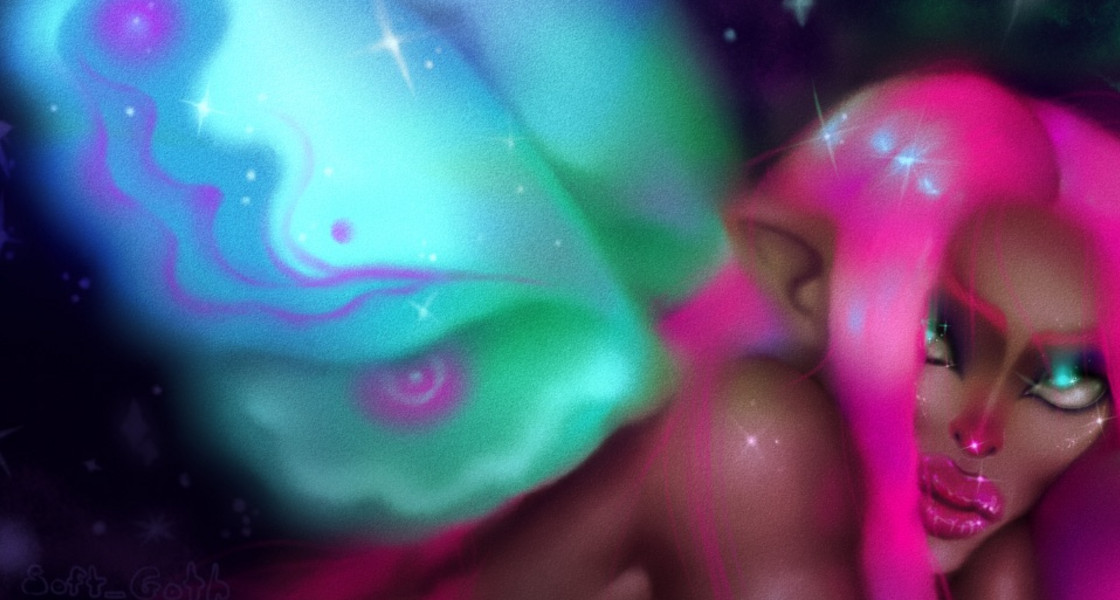
Along with NYMPH, all other content created by THUGPOP will live on his new online platform, ThugPop.farm.
Listen below.

Blu DeTiger — Do you know Mitch?
office — Of course.
The other night, I had this big album release party and he was there.
Yeah, I ended up there briefly with my buddy Harrison. We were at our friend’s birthday and he was like, “Do you want to come to Gonzo’s with me?” And I love Gonzo’s, so of course. Didn’t see Mitch, though.
You guys probably got there a bit later. But you didn’t say hi!
We didn’t leave for Gonzo’s until 1 am, so we were super late. I didn’t see you — I was in the back studio with my buddy Lucas. We were noodling around on the bass and guitar. You set those up, right?
Yeah, I wanted to have jam vibes at the party. And I was having fun. I thought it was like, the most fun party ever… Shit, do you know Cassie and Liv? And Caitlan? She styled my album cover. I was in the first issue of office.
Oh my god.
I was street cast when I was like, fifteen, at Afropunk festival, and they were like, “I’m shooting for this magazine.” So, full circle. I’m glad you were at the party.
It’s weird how we’ve never crossed paths before. Gonzo’s is such a good place to hang. The cheetah carpets are so hot.
It was so hot in general. I was like, “You guys gotta turn the AC up.” But it was fine. It was the best DJs, who were actually just old friends from New York who’ve seen me grow up since I was seventeen and DJing in the city. They were all at the party, which was another really cute full circle moment. They’re such a supportive and sweet cast of characters.
How’d you meet everyone?
I don’t know — I was just in it. I just knew them because I’m like, cool, I guess. I don’t know. I just know everyone from music and the city and going out and whatever. Growing up in New York, you just kind of meet everyone.
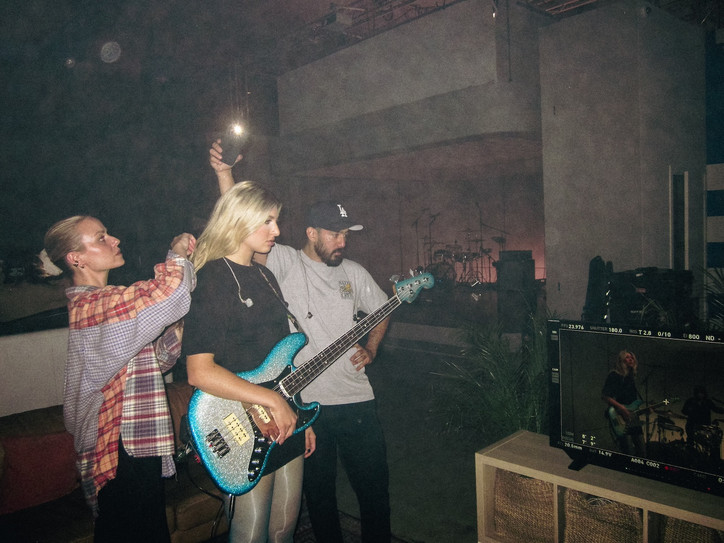
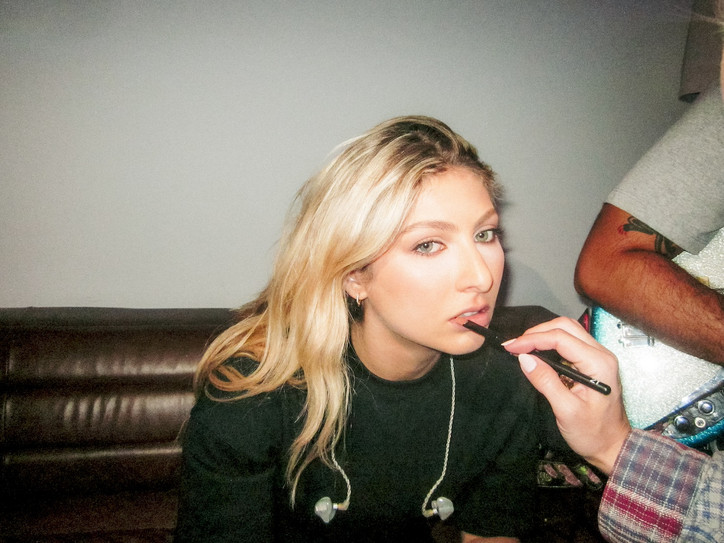
Where are you now?
I’m in LA, but I grew up in New York. My parents are still in the city, so I go there all the time. I hadn’t even been to LA until I was nineteen. I’ve been playing in New York since I was seven — my first ever gig was at CBGB.
You were seven and playing CBGB?
It was through School of Rock, which was this after-school thing every semester. There would be different shows and they’d be tributes to different artists. So the first time, it was Rolling Stones, and you’d practice the songs for a few months and then have the show at the end of the semester. And the shows we did were always at CBGB. But yeah, I got that New York blood in me.
My first bass teacher was from School of Rock — I was learning on this little short-scale. Being able to play with other kids is really important, especially when you’re learning an instrument. It’s a conversation — you’re learning how to converse with other musicians by playing and improvising — as opposed to just playing in your room practicing. It’s totally different.
Nowadays, when musicians get big, they get big as individuals and then they’re like, “Now I have to learn how to be in a band.” It’s kind of backwards.
And it’s so important, especially for bass. It’s all about fitting in the music with the other instruments.
So you started with bass and have been there ever since?
Yeah — obviously I sing now, and play guitar and produce and all that other stuff, but bass was my first love.
How’d you learn all that other stuff?
I guess if you’ve been playing music forever, you can kind of grasp guitar from bass. And everyone has a voice, of course, so I just started singing. But I didn’t really get into singing and studying my own voice until I was seventeen, when I was ready to make my own music and put out my own stuff. So, that came a little bit later to me. But it’s all music — you just pick things up here and there. Once you have your head around one instrument, it’s easier to transfer your music knowledge and theory to other instruments.
That’s so true — I tried to learn bass when I was younger but it was too big for me — too heavy. So I had to get one of those ¾ guitars and honestly, just from picking up the bass first, I was playing the guitar like a bass. How’d you get into writing?
I guess I was always kind of writing. I was in bands growing up ad we’d write together, but I started writing songs for myself was at seventeen. I was nineteen when I put out my first song under my name. It’s kind of funny, because growing up, singing and playing guitar and singer-songwriter stuff — that wasn’t my thing. It kind of came to me later in life, and you can hear that in my music. I always approach things from the bass and the groove, and all the rest kind of falls into place.
The bass is really underappreciated.
Tell me about it.
I think a lot of people forget that the bass isn’t just root notes — I mean, you of all people know what I mean.
That’s what I’m trying to do with my music — just showcase what the instrument can do and bring it to the forefront and inspire people to pick it up.
Growing up, would you only play with the other kids from School of Rock? Or would you also play with adults?
I was always the young one in the group because it’s harder to find bass players anyways. Especially good ones. So when I was in middle school, I was playing with high school kids. And then when I was in high school, I was playing with all the NYU kids and they’d hire me to be in their band for their showcase or whatever, and I would make like, a hundred bucks or something. I was always kind of with the older kids. And I was DJing from a really young age too. I started DJing when I was seventeen and I was DJing with like, thirty-year-olds.
The DJ scene is really funny, especially when you’re B2B with someone who’s been DJing for longer than you’ve been alive.
Oh totally. It’s really crazy. But that’s also how you learn — playing with other people, seeing other DJs work and learning their technique or style or whatever. You’re always picking bits and pieces up from different place.
It’s funny — I’ve been into music since I was really young. I was seven or eight and listening to the Rolling Stones and the Beatles, so I have this vast music knowledge so I can hang with the bros, I can hang with the old heads, I can hang with anyone. I have a lot of music knowledge that also comes from DJing, because when you’re spinning four times a week, you got to know all the hits from every decade. You have to know like, every song ever. You’re a taste maker, so you have to know all the cool shit. So DJing was really important for expanding my music knowledge.
So, All I Ever Want Is Everything — what’s the story?
The story? The story is just that it was time for me to make an album. I had an EP before that, and these past few years I’ve been touring a lot and writing between all these shows and festivals. It was just the time in my career — I had to put out a full body of work and that’s what this is. It’s about the past few years — growing up and the transitional phase of becoming an adult and ups and downs and life and all that shit.
I’m a producer on everything but I worked alongside a lot of cool collaborators. Uffie is on a few songs — she’s a legend.
I saw her at Dorian Electra.
I love Dorian — they were at my LA release party. We went crazy.
What was the difference between the New York and LA party?
It’s so different. The New York energy is so different. LA — the party only goes until 2, dies out at 1.
Were you recording with a full band? Or is it just you on everything?
It kind of depends on the song. Obviously, I’m singing and playing bass on everything. My brother Rex played the drums on a lot of the tracks and he played a little guitar, but I played a lot of the guitar as well.
Do you prefer doing it that way? Where you’re doing everything and putting it all together at the end?
Yeah — if it’s my album and my name on it, I’d rather do everything I can. I want to feel like it’s coming from me.
Do you find there’s a difference in what you’re putting out when you’re in New York versus LA?
For sure. Anywhere you write, it always feels different — just different energy. I wrote most of the record in LA, but being from New York and growing up there, it’s like that saying, “You can take the girl out of the city but you can’t take the city out of the girl,” whatever the fuck that means. It’s kind of true. No matter where I am, I still have the New York edge and grit. In the production, you hear the broadness and grittiness of the sounds being used. Are you from New York as well?
No, I’m from Ohio. I grew up in Cleveland but my parents are back in Columbus.
That’s sick. I played a show in Columbus and a festival in Cleveland.
The house shows are awesome in Columbus, but you can understand why I wanted to not be in Ohio, right?
Of course. New York is the best city in the world. It’s the dopest.
You’re gonna say that to all the LA people reading this?
Yeah. I don’t mind. I say it all the time. It’s where I’m from, it’s in my blood.
What do you want people to know about you?
Just listen to the album and you can figure it out from there. Come to the show.
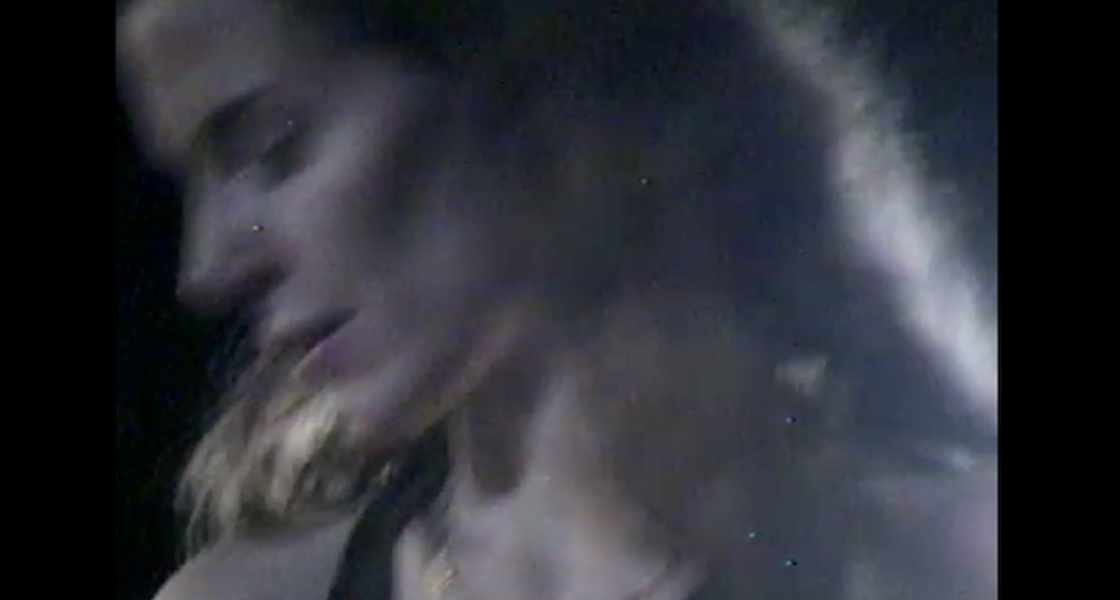
While others were possibly screaming at each other, Nina, Jezmi Fehmi, and Sam Fenton were screaming in chorus — the trio became a band during shelter-in-place curfews, not long after the three of them started living together. Fehmi and Fenton came from “Double Virgo,” while Nina came from her solo project “Nina.” I like to picture them writing woozy lyrics across dirty dishes; something, if not everything, about their sound does not strike as polished, yet it's almost annoyingly precise in its patronage.
Titles are as vague as their noise is amorphous, and the ambient appeal stretches across all four albums — Quarrel, bedhead, Tracy Denim, The Twits — and as the band hits the road once more — all across America.
Nina— Sorry for any noise. We’re on the motorway.
Turn on the camera!
N— OK. I can do that.
Where are we headed?
N— Asheville.
What did you dream about last night?
N— I have the most meaningful memory: we’re on a boat, really shallow water — like aquamarine — there’re a lot of stones all around us and small islands made of crystals. We approached a medieval church, it had a cross at the top that was made in stone, carried by columns, it was backlit by the sun so it looked very majestic. And then we swam in the water.
And that was it?
N— That was it.
Jezmi Fehmi— I had a very desert based dream because I watched the new Mad Max trailer yesterday. It was very sand. It was very hot. Perhaps it could also have something to do with the van, or the fact that we’re headed to the desert soon…. What did you dream about?
I don’t. Or well, I guess I do but I haven’t woken up and actually remembered a dream since I was a teenager. It sucks, but then again I don’t get nightmares either.
Sam Fenton— I had a nightmare once that I had to reset an exam, I hadn’t done any homework to prepare for it and as I looked down at myself I was sitting there all naked.
Does it hold relevance? Does what you dream ever add up to something?
SF— 100%
JF— I don't think they do.
N— I feel like it helps you process stuff in ways that sometimes feels more true to yourself. Once we’re so fed with experiences and expressions throughout the day — especially while being on tour, for example — dreams are then like a digestion system. But for the mind.
Does bar italia have any dreams in common? What's the goal.
SF— Food. The next coffee. Soccer.
Then you’ve already made it.
JF— I guess so. We’re currently driving past a place called Kernersville, in North Carolina, which means that we’ve definitely made it as far as I’m concerned.
N— Once the vultures are circling around you. That means you made it.
Likewise once people start inking bar italia onto their bodies? Your response to fan tattoos were that you were “going to be gone next year anyways,” while a tattoo is eternal — where are you going?
SF— You’ve got to live like you’re going to be gone next year.
That sounds very "yolo"?
JF— What it means to me is to appreciate everything that’s happening or not happening right now. It could be gone.
SF— Yolo is destructive, what I’m talking about is about maintaining the value of your life. To not take anything for granted.
Not even Kernersville.
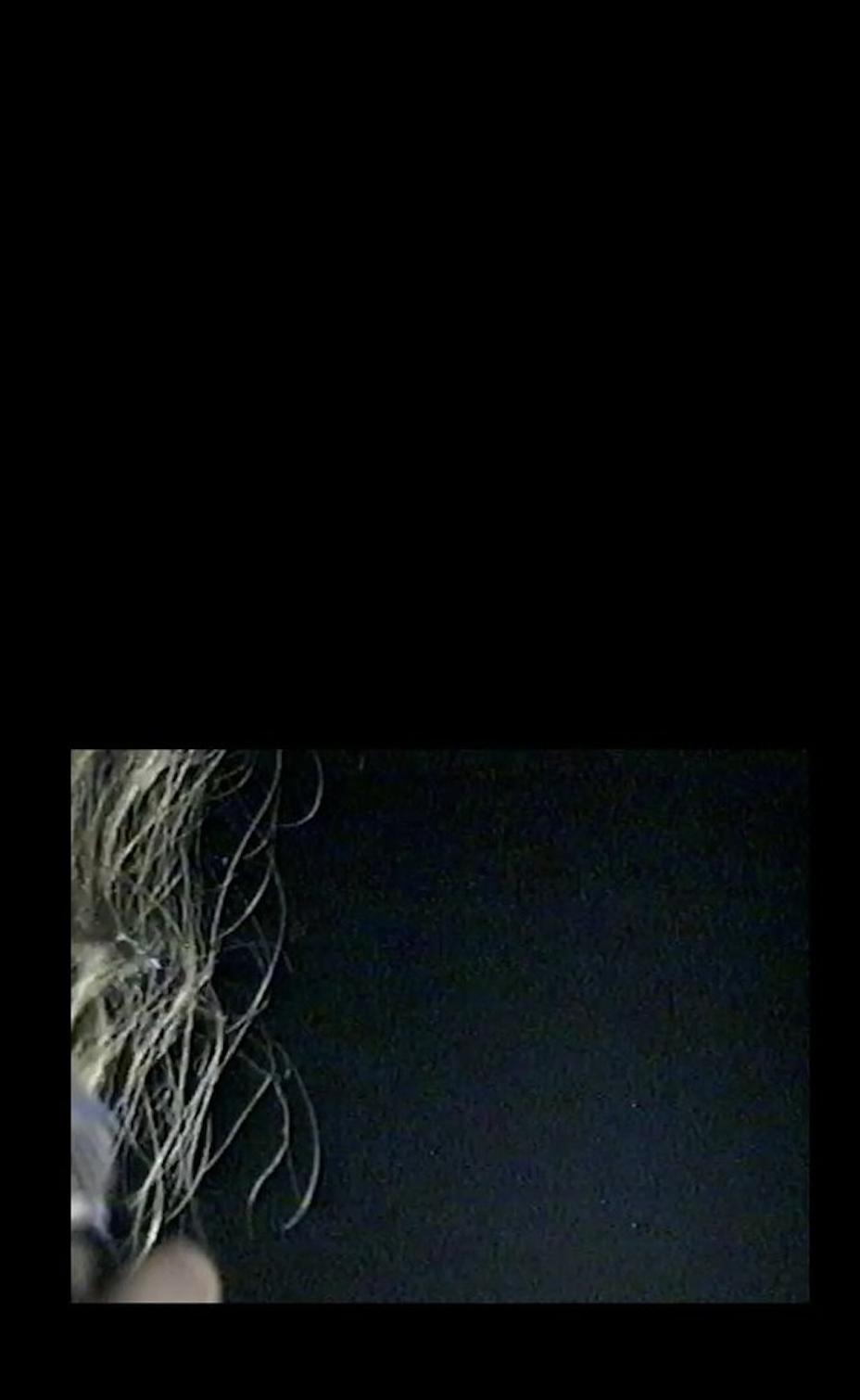
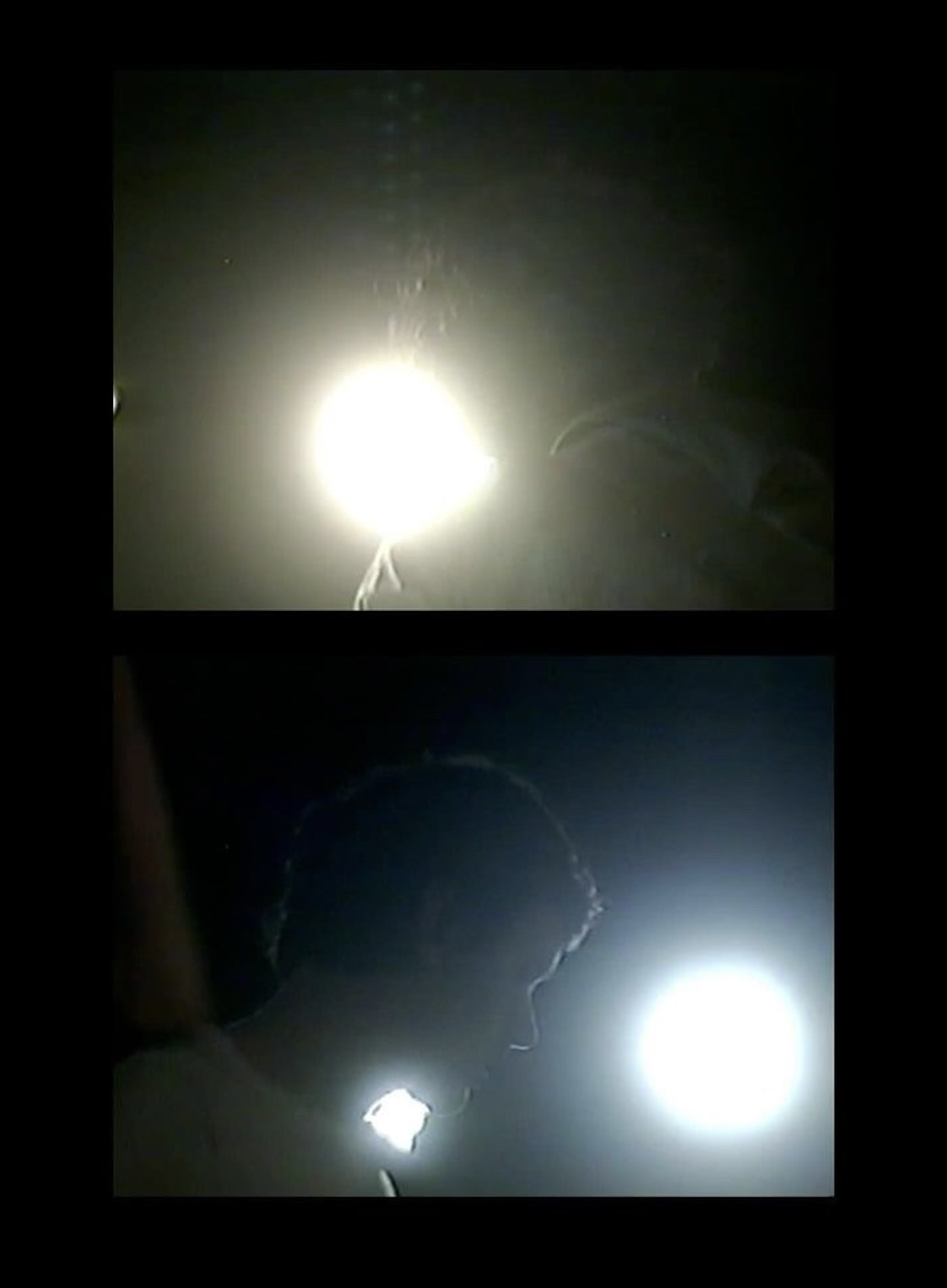
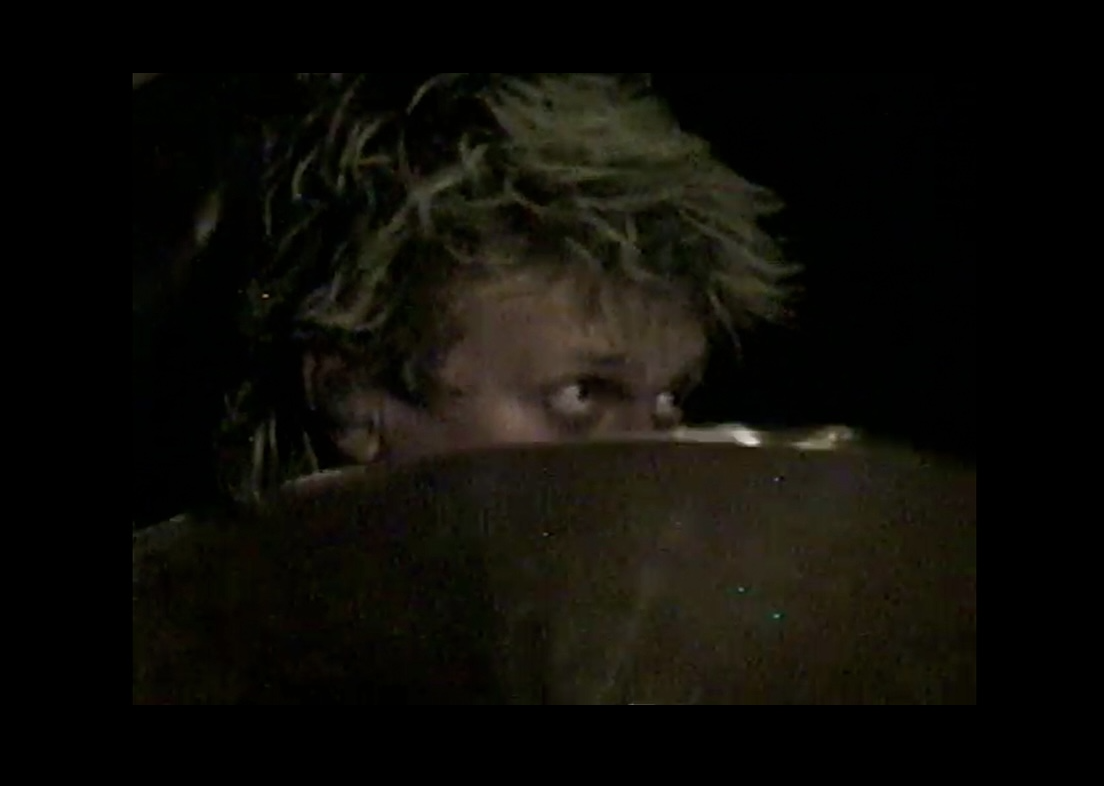
Are you good at living in the present, then?
N— Working on it, that is our common goal, if you like. Sure it kind of gets harder to stay present as the attention grows, but at the same time it gives you a better understanding of what's happening around you. Also, to be around the right people who can make you process whatever it is that's going on.
Or, to be on the road? Touring in all its madness but isn't the road quite calming?
JF— I sleep in the car. And everybody wants me not to. I snore, a lot.
P— I love driving past a new bridge, that’s always a perk. I’m especially fond of a bridge that’s under construction, when one is overlapping the other. It’s like spaghetti, or a Jungian dream.
Do you have a favorite bridge?
SF— Liam’s favorite is Under The Bridge Downtown. Personally, I’ve burnt all my bridges.
Liam— My second favorite bridge is in “Joise” though; when it goes from the D minor to the E minor... do get you that one?
Let’s just say I don’t think I’ve driven across it.
N— We’re just making puns…
I’d like to blame the reception. But maybe I’m not British enough.
We’re going to hit an exit for you, just leaving the highway… hang on.

Puns aside. I’ve read too much about your sound — “mello vocals”, “conversational croon”, “hardcore howl” — whatever, I prefer just listening to the actual noise. Instead of putting sound into words, describe bar italia in a feeling. Or form. Or flavor. You get it.
SF— Spicy. It's spicy.
As in curry, Indian spice, burning type of way?
JF— No, no, no. Spicy as in hot, as in red hot chili peppers.
SF— Like a scotch bonnet under your eyelids. That’s how we’d taste. We’re the flavor you can’t get off your tongue.
And where is this scotch bonnet played out? In what setting do you envision your music, other than the stage?
JF— Somebody told me, quite recently, that they lost their virginity to a bar italia song.
N— Someone sent a message saying they went down on their girlfriend while listening to us.
To what song?
N— No specifications, it’s just “to your music.”
So the environment is inevitably the bedroom? Or a virgin could get lost anywhere, really.
JF— Whatever works for them. I think the female cunnilingus is, specifically, the setting.
SF— Male cunnilingus!
JF— Oh right. Did I get that wrong?
Where is it exactly?
N— The setting is any cunnilingus. We don't discriminate.
Music for sex.
N— Yes.
Cool.
SF— Thank you, for fuck's sake.
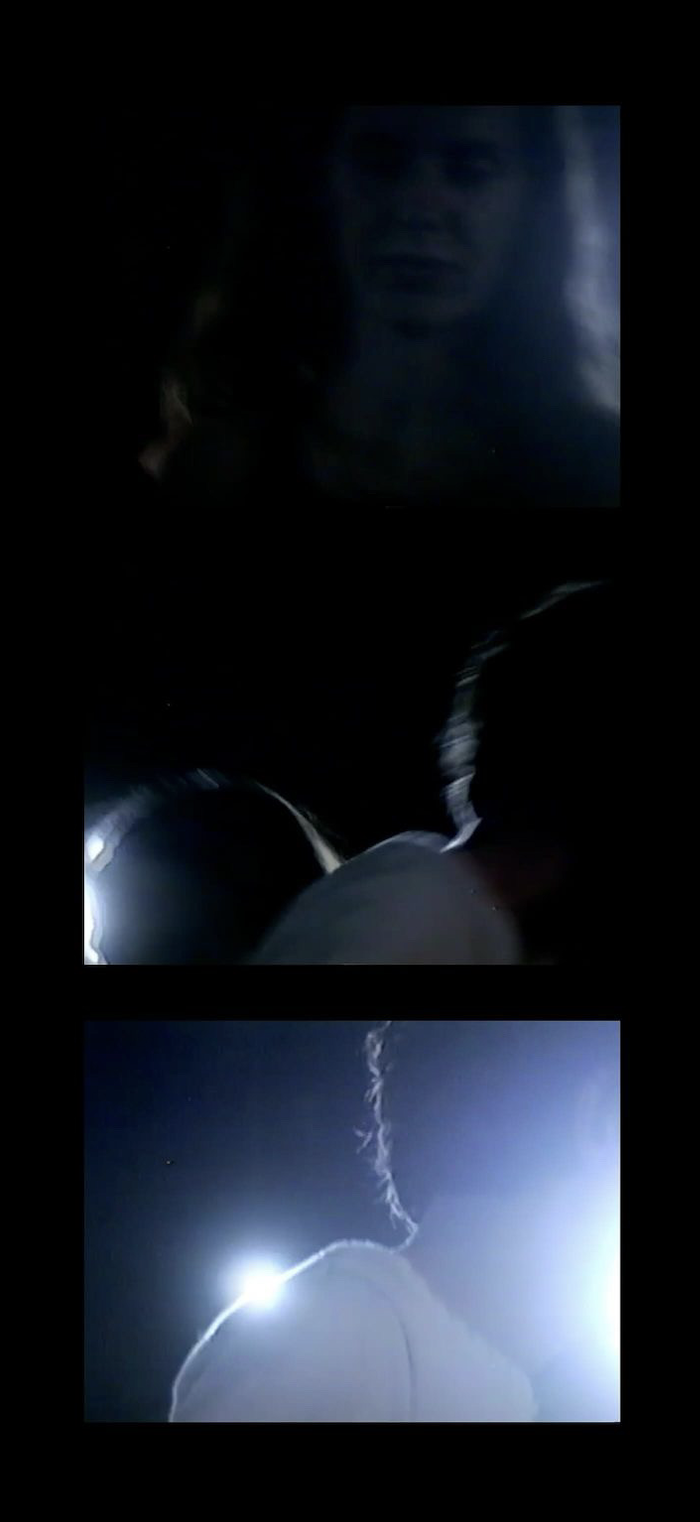
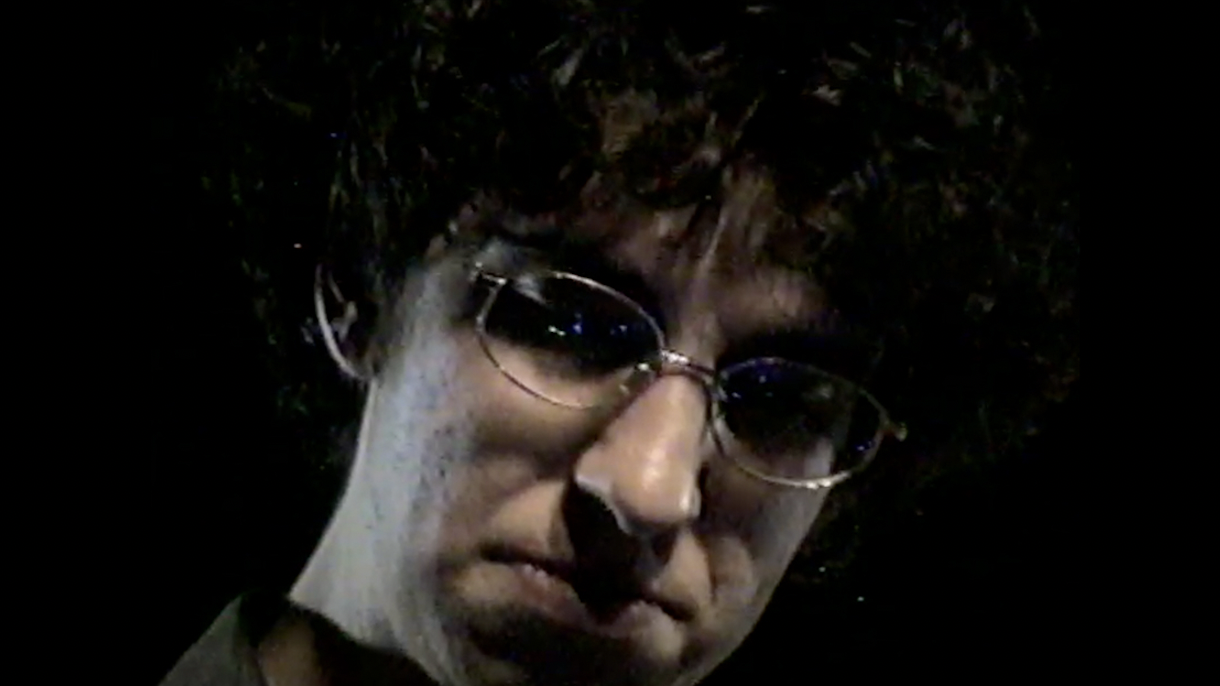
I heard that Jezmi doesn't like music at all, not even your own music, which…
JF— When I said that it had been a really long day, and..
What do you then do when the rest of us turn to music? To cry, to rage, to feel, to escape, to isolate, to relate?
JF— I do the same, I listen to music. I’m not much different from anybody else. However, what I meant is that I often find music much more interesting as a phenomenon, as something to read about — I like biographies or autobiographies of musicians, it’s history in general — in comparison to just listening. But music is still my soul's emotional playground.
You were all pretty quick to jump to defense just now, have you had it with people perceiving you “wrong,” if there’s such a thing as right or wrongs?
N— I mean, we’re only human so, naturally, certain things will get to you personally, perhaps there’s been some stuff in the past. But as a band, no. I’d say we’re quite good at not worrying too much, about being things we aren’t.
Previously you were mysterious for not speaking to the press, whereas now, supposedly, you’re rude for not speaking to the audience? I think it's sympathetic not to clutter the ambivalence with meaningless chat while performing.
N— We rather have the connection to just be real. Instead of repeating the same phrases over and over again, out of the light, we’re just seeing if something comes up. And, if it doesn't, we hope that the set is good enough to stand on its own.
Cool.
N— Cool.
Define cool?
N— I don’t know if I have an answer.
JF— I’ve got one. Cool is something that makes people engage with something in a way that interests them for a reason they don’t know why.
SF— Cool is when you don’t give a shit. Like cigarettes and drugs and nothing else. And sex is cool. The coolest people I know are asexuals.
JF— They claim to be but are seemingly sleeping with about seven people at the same time.
Is that uncool? What’s uncool?
JF— ...art.
N— Could you not Jezmi? You don’t have to destroy one genre every interview. We’ve got music covered — we hate music! Now art is covered — we also hate art!
What about bar italia art? I’m not referring to your past exhibition but the little doodle making up your logo. What’s the story?
N— No, you can’t ask any questions about him. The doodle is not even off the record but never on the record.
Well just tell me this, is he crying? Meditating? Who’s the artist?
N— That's a secret. You’re free to ask anything but not this. He’s doing a face massage. That's all.
JF— He’s meditating.
SF— Washing.
Washing his tears away?
N— No, no, no, no, no, no, no. There’s no tears. It’s massaging its face. It's lymphatic drainage.
Post tour vibes or real desperate house vibes?
Both.
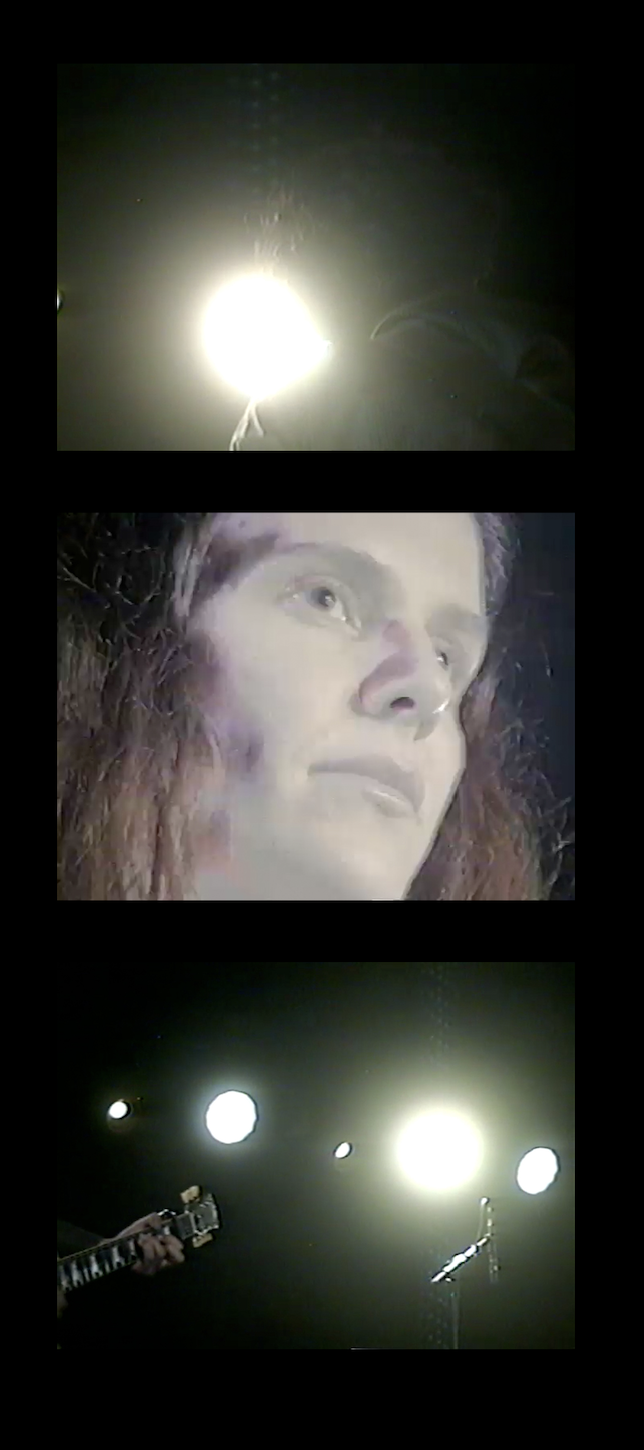
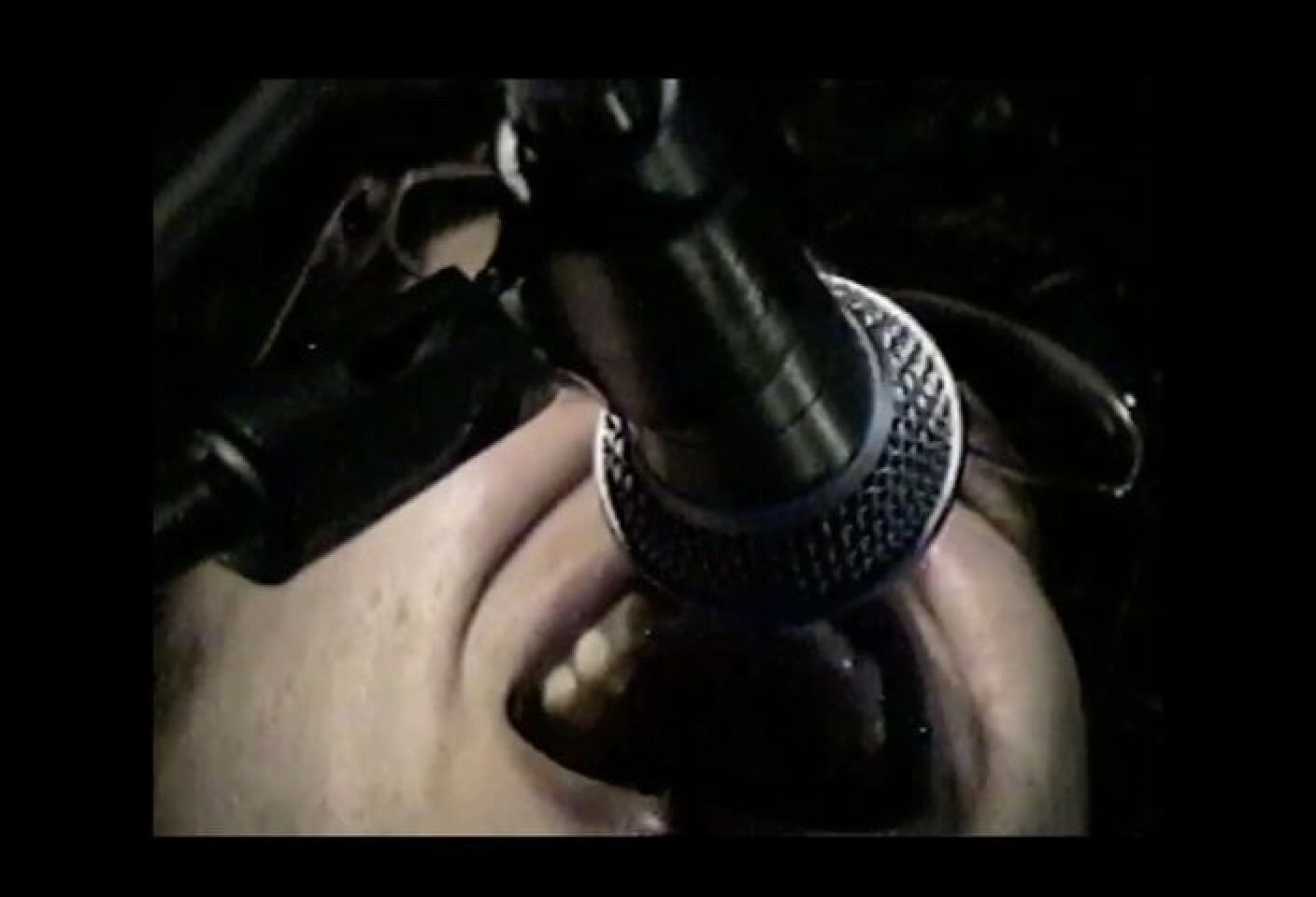
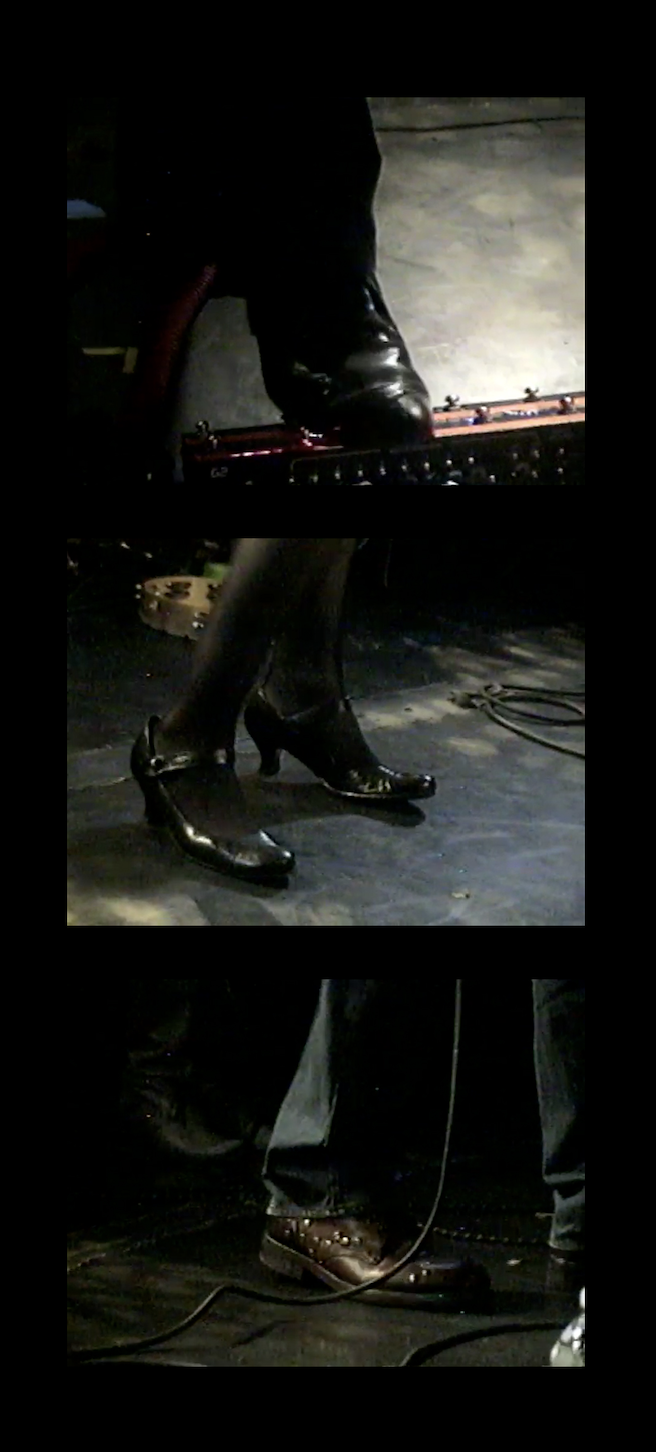

Through Daldas’ megaphonic yelps and Zeitner’s cybernetic sound design, tracks like “No Sex With Cops” and “GEWALT GEWALT” find a safe home in the sleazy nucleus of NYC’s club scene. Piercing-laden pixies and smiley-faced gabber fiends stood eagerly in attendance for Brutalismus, just a year and some change after the release of their debut album, ULTRAKUNST. As they debuted head-pounding new music, the German duo showcased their ability to control an entire room with their hellish sound palette.
Watch the duo head to their Knockdown Center show in the midst of eclipse madness below.